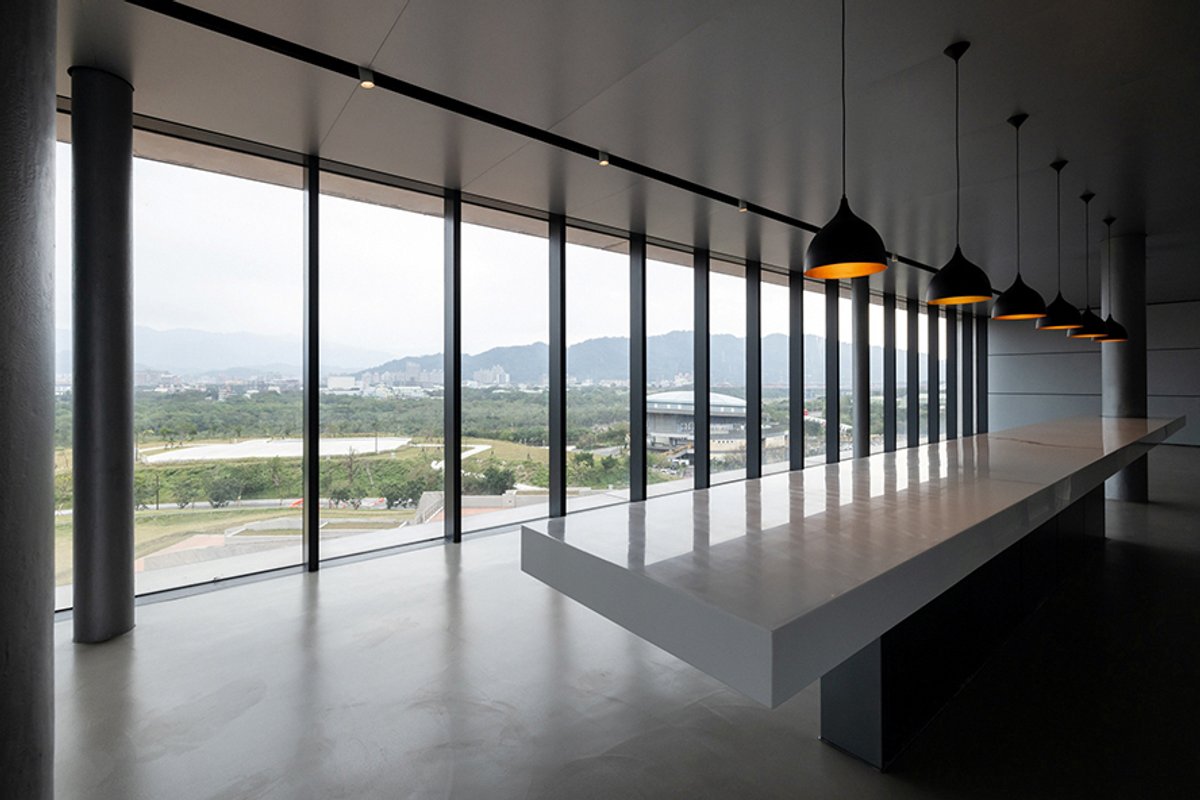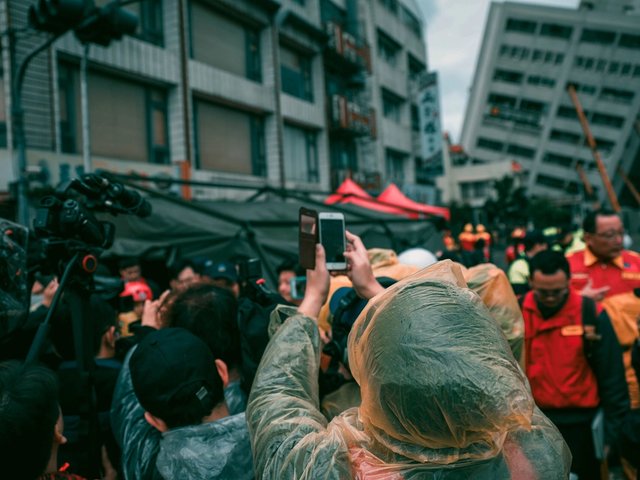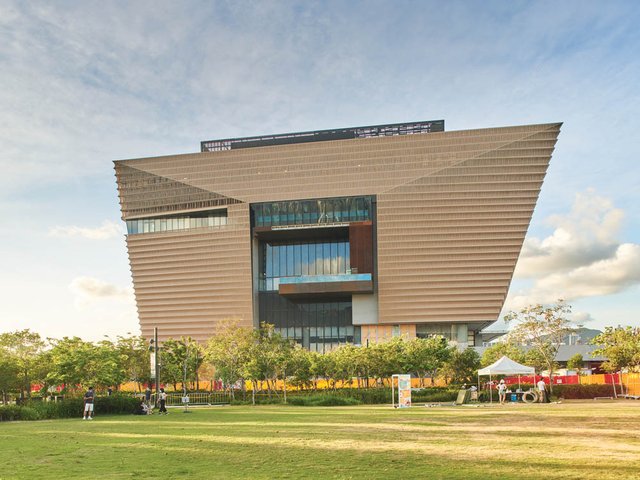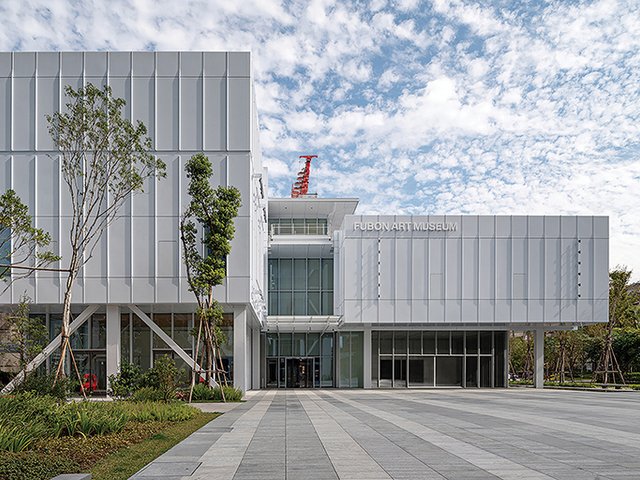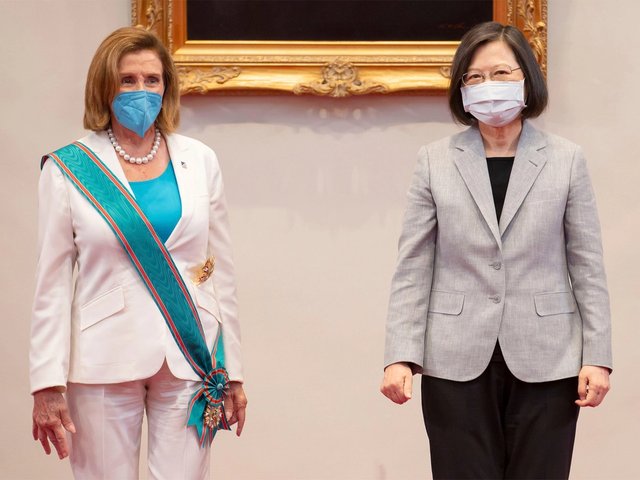A new art museum opening on 25 April in New Taipei City, Taiwan’s most populous metropolitan area with four million residents, is expected to help the city carve out a distinct artistic identity and emerge from neighbouring Taipei’s cultural shadow.
New Taipei City is a municipality in northern Taiwan that surrounds the capital, but is administratively separate. The two neighbours “share a closely interconnected art scene, given that many artists live and work across both”, says Lai Hsiang-ling, the director of the new museum, the New Taipei City Art Museum (NTCAM). “New Taipei City distinguishes itself with a more experimental, grassroots creative energy and a deep-rooted tradition of popular and folk culture.”
Located in a 32,641 sq. m building designed by Kris Yao of Artech, NTCAM features eight floors above ground and three more below, with five exhibition halls and a 500-seat auditorium. It is part of a wider complex that incorporates a 15.5 hectare surrounding park and the Creative Cluster, a public plaza with facilities for culture and leisure. Public art events in the park have already been running since last year, and the complex includes several studios for artists.
New Taipei City is best known internationally for its colourful mayor, Hou You-yi, who lost a bid for Taiwan’s presidency in 2024 under the Chinese Nationalist Party, or Kuomintang. But significantly for the art scene, the city also boasts “strong industrial and manufacturing capabilities” and “relatively affordable storage and exhibition spaces”, Lai says. These have fostered the growth of studios, independent art spaces and artist communities, with some tapping into local traditional craft industries like ceramics and indigo dyeing.
Lai highlights the Xiaguirou mountain art village in Tamsui, home to contemporary artists like Isa Ho, while the city’s North Coast region is a hub for sculptors including Lee Tsai-chien, Chang Nai-wen and Chang Tzu-lung, who founded the TESA Creative Center in Shimen. Young artists cluster their studios around the National Taiwan University of Arts in Banqiao. The storied non-profit artists’ workshop Bamboo Curtain Studio, active from 1995 to 2021, will soon relaunch as a collective workspace for artists.
International advisory committee
Lai previously inaugurated Shanghai’s Rockbund Art Museum in 2010 and Taipei’s Taiwan Contemporary Culture Lab in 2018, and has also worked at the Museum of Contemporary Art Taipei and the Taipei Fine Arts Museum. At NTCAM, she is supported by an advisory committee that includes Aric Chen, the director of Rotterdam’s Nieuwe Instituut, Patrick Flores, the deputy director and head curator of the National Gallery Singapore, and Clara Kim, the chief curator of the Museum of Contemporary Art, Los Angeles.
“I’m excited by the directions being laid out at NTCAM, with the potential for everything from new curatorial practices to new forms of community engagement,” Chen says. “To me it also shows a cultural confidence in Taiwan that’s driven by cultural practitioners; hopefully the era of new institutions in the region focusing on playing catch up with the West is behind us.”
NTCAM’s four inaugural exhibitions open on 25 April. New Taipei City collective Xindian Boys are on show with Don’t Worry, Baby (until 27 July). A collection show, Encounters in Reflection (until 17 August), is entirely dedicated to the city’s artistic heritage and development, explored through themes of human impact on nature. Its 46 artists include Yuan Goang-ming, Wu Mali and Richard Lin. Ecological themes connected to the surrounding river basin continue with an interactive project, The Ongoing Nature (until 14 September); its four artists include the locally based Kuo I-chen. Meanwhile, the New Taipei City artists Zhang Xu Zhan and Liao Chien-chung are among the 23 artists in Reimagining Radical Cities (until 7 September).
NTCAM will initially launch as an Incorporated Administrative Agency, Lai says, which means it will be funded by the city government while “exploring diverse revenue streams, including ticket sales, publications, creative product sales, venue rentals and commissioned services”. It receives further support from public and private donors.


